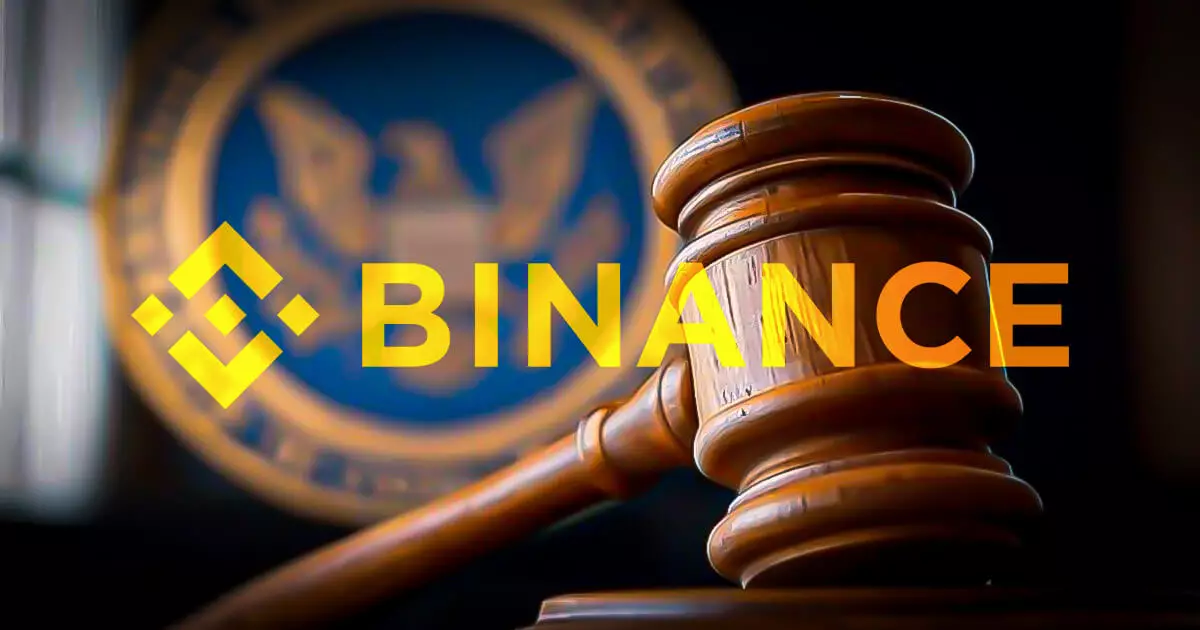In a notable development within the realm of cryptocurrency regulation, the US Securities and Exchange Commission (SEC) and Binance have jointly requested a 60-day suspension of their ongoing legal battle, according to a filing dated February 10. This unusual alliance arises from the SEC’s establishment of a dedicated cryptocurrency task force under the leadership of Acting Chair Mark Uyeda. Both parties believe the newly formed task force could significantly impact the trajectory of their lawsuit.
The decision to pause the proceedings was influenced by the potential outcomes of the task force’s work. By agreeing to a temporary reprieve, Binance has prioritized judicial efficiency, believing that this collaboration may lead to expedited resolutions in the case, aligning with the SEC’s goal of a pragmatic approach to crypto regulation. Upon the conclusion of this suspension, the involved parties plan to file a joint status report, which will help assess whether further extensions are warranted.
This litigation, initiated in 2023, revolves around accusations from the SEC suggesting that Binance violated US securities laws by offering various tokens, including but not limited to Solana, Cardano, and Algorand. The SEC contends that these digital assets qualify as securities under the Howey Test—a legal benchmark used to determine whether certain transactions qualify as investment contracts. The agency’s position has raised significant concerns within the crypto community, as many argue that the entire concept of cryptocurrency rests on principles of decentralization and openness.
A critical moment occurred in July 2024 when the SEC sought to amend its initial complaint; however, Binance countered with a motion to dismiss both the amendment and the entire lawsuit. This mutual progression underscores an evolving dynamic in regulatory scrutiny and compliance within the increasingly complex cryptocurrency landscape.
Under the auspices of Mark Uyeda, the SEC appears to be recalibrating its stance on cryptocurrency oversight. The formation of a specialized Crypto Task Force signals a departure from previous strategies that many viewed as overly aggressive and lacking transparent guidelines. Prominent among the task force’s members is Commissioner Hester Peirce, a staunch proponent of comprehensive regulatory frameworks that provide clarity for cryptocurrency ventures. Peirce’s critiques of the SEC’s historical enforcement practices resonate with many within the blockchain community, as she argues that vague regulations stifle innovation and deter legitimate business operations in the sector.
Furthermore, recent reports indicate that the SEC is downsizing a specialized unit focusing on crypto enforcement, signifying a substantial shift in priorities. By reallocating resources and redefining its regulatory focus, the SEC seems poised to foster a more conducive environment for digital asset development while still maintaining essential oversight.
As the SEC and Binance navigate this judicial hiatus, the implications of their coordinated efforts may pave the way for a more coherent and structured approach to cryptocurrency regulation in the United States. The sustained dialogue between regulatory authorities and industry leaders could potentially yield regulatory frameworks that strike a balance between oversight and innovation. Observers will undoubtedly be keen to monitor how the outcomes of this pause might shape future regulatory practices and the overall crypto landscape as both parties prepare for their next joint report following the suspension.

